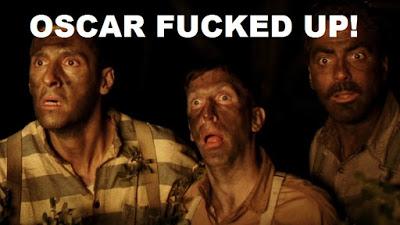Wallace Beery: The Big House
Maurice Chevalier: The Big Pond
Ronald Colman: Bulldog Drummond
Ronald Colman: Condemned
George Arliss: Disraeli (winner)
George Arliss: The Green Goddess
Maurice Chevalier: The Love Parade
Lawrence Tibbett: The Rogue Song
What’s Missing
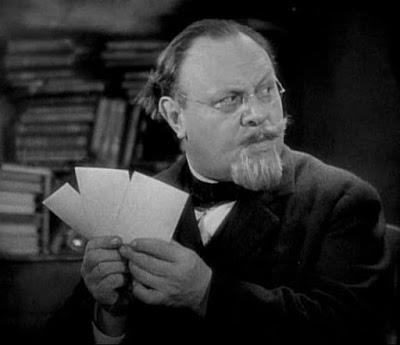
While there are eight nominations for Best Actor for this Oscar “year,” there are only five actual nominees, since Maurice Chevalier, George Arliss, and Ronald Colman scored two nominations. I don’t actually have a great deal to add in terms of misses, but there are a few. The reason I don’t have some major additions is that with eight nominations, what we have covers most of the films I’ve seen. That said, there are a couple of big gaps for this category. Emil Jannings was an early favorite of Oscar, and I see no reason that The Blue Angel should have missed a nomination here. The staggering omission, though, is Lew Ayres for All Quiet on the Western Front. I can only think he wasn’t nominated because he was essentially an unknown at the time. It also is interesting to me that Wallace Beery was nominated for The Big House rather than Chester Morris, who is the real main character.
Weeding through the Nominees
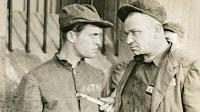
8. The Big House is not at all my least favorite of these movies, but it is the one that I question the most in its being here. Wallace Beery is fine in the role he has, but it’s a role that asks nothing of him. He’s a thug and he’s going to remain a thug throughout the movie. Chester Morris is a lot more interesting, and if we wanted a nomination for this film, it should have been for him. There wasn’t a Best Supporting Actor at this time, though, and even if there were, Beery wouldn’t have stood for being nominated there. There’s just no reason for him to be here at all.
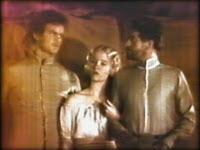
7. It may be unfair to put The Rogue Song in seventh place when I could really only see about 30 minutes of it, but 30 minutes was really enough. Lawrence Tibbett was not a film actor. He was a stage actor and that is clear in every frame I could see and every moment of the film I was limited to listening to. That Tibbett was nominated for this rather than Emil Jannings or Lew Ayres is a punch in the face, and evidence of Oscar’s early bias toward musicals in the birth of the talkie era. There’s no reason he should be here.
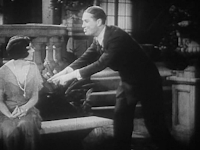
6. The Big Pond is a fine film for what it is, but I don’t really understand the need to nominate Maurice Chevalier for this role. He’s fine in the role, but it’s also a role that doesn’t ask him to do anything but be Maurice Chevalier. Chevalier does exactly what he is asked to do, but the film doesn’t honestly ask him to do anything but be the Frenchiest of French stereotypes. He didn’t need to be nominated for two roles—he’s got a much better role from this Oscar “year,” and that’s all he really needed.
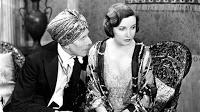
5. Of these eight movies, The Green Goddess is the one I liked the least, but George Arliss is absolutely the best part of it. He’s having a great time in this role, and while it’s at least mildly offensive today in terms of the whitewashing of this film, Arliss has a few really good moments of calling out the inherent racism in the film against the character he is playing. Still, Arliss had two nominations this year, and he really only needed the one that ultimately got him the statue. There’s no reason for anyone other than a completist to watch this movie.
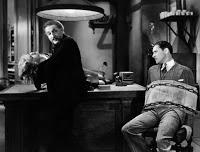
4. Bulldog Drummond isn’t the first film about an intrepid detective and its certainly not the best one, but it’s a nice role for Ronald Colman, who is not only the best part of the film, he’s the only part of the film that is remotely interesting. He’s having a great time making this film. It doesn’t really ask him to do a hell of a lot other than have fun playing the character he’s playing in the situations he experiences. We know nothing bad is going to happen to him, but it’s fun to see Colman have a good time.
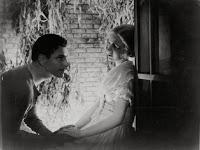
3. Condemned might be my favorite of these movies (might--The Love Parade could be as well), and Ronald Colman is a big part of that. It’s ridiculous and unbelievable, but it’s also great pre-Code fun. Again, this film more or less asks Ronald Colman to just be classy and Ronald Colman, but in this case, that’s enough. While he’s not asked to do a lot more than just be himself, this film is a lot more demanding on him, a lot more serious, and so he ends up doing a great deal more.
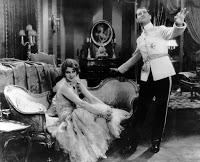
2. The Love Parade is probably the most Maurice Chevalier of any movie he was ever in. If you want the full Pepe Le Pew experience, this is the movie you want, because the entire focus is really on Chevalier being who he is. It’s a lovely film, and while Chevalier really isn’t asked to to more than be charming and French, everything is focused on him, and he’s up to the challenge. It also helps that this was directed by Ernst Lubitsch, who always got the most out of his actors, especially in movies where romance was involved.
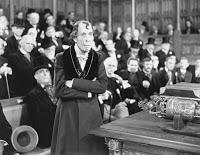
1. Based on the actual nominees, I don’t really dislike George Arliss winning for Disraeli. The movie is fine, not really worth a second watch, but it’s Arliss is absolutely the reason to watch it. He’s having a grand time in this film. Disraeli is smart and resourceful, and Arliss is absolutely at home allowing the audience in on all of the jokes and on all of his ideas. It also helps that Arliss actually looks good wearing a monocle. In an open field, he wouldn’t win, but based on the actual nominations, I’m okay with him taking home the prize.
My Choice
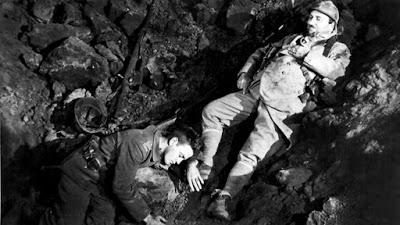
Emil Jannings would have been a fine choice for this, but he’d come in second place for me and no higher. This absolutely should have belonged to Lew Ayres in All Quiet on the Western Front. Sure, the story is a good one and it’s beautifully directed, but it’s Ayres who gives the film focus, heart, and life, and he should have been nominated and he should have won.
Final Analysis
